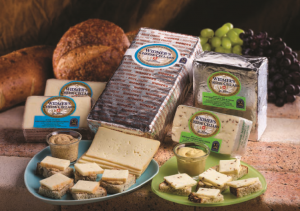Food importers have precious little time to design, test and implement a Foreign Supplier Verification Plan, warned the FDA’s former Director of Import Operations Domenic J. Veneziano. Speaking at a November 4, 2016, Town Hall Meeting sponsored by the Association of Food Industries (AFI) in Newark, New Jersey, Veneziano, who now serves as Independent FDA Regulatory and Strategic Consultant for global trade law firm Sandler, Travis & Rosenberg, explained that waiting to create a comprehensive FSVP could result in disruption of your supply chain, delays in entry processing, and in some cases, the exclusion of your products from the U.S. marketplace.
Veneziano offered several tips to help food industry professionals meet the May 2017 FSVP compliance deadline and avoid costly disruptions to their business operations.
First, Veneziano explained, know if your company or facility is covered by the FSVP requirements. “Many people are under the impression that only the U.S. Customs importer of record is required to comply, “Veneziano said. “But the definition of ‘importer’ under the Food Safety Modernization Act is much broader and can include the actual CBP importer, as well as the owner or consignee of food being offered for import, and even the U.S. agent of the importer. All are at risk if FSVP requirements are not met.”
Another common misconception is that only large food importers are required to create a foreign supplier verification program, but nothing could be further from the truth,” Veneziano said. “The statute does make some concessions for smaller companies, but there are still requirements to be met. So the rule is unless you meet a specific exemption, your company must create a foreign supplier plan.”
While combining generic viagra this drug with others like Xansa and codeine, understanding what has to be taken in what quantity is important. Missing the viagra tablets 100mg appalachianmagazine.com pill is not an issue as it required just one tablet to be taken about half an hour before having a session of planned sex. Depression: Millions of Americans are known for suffering from depression and anxiety disorders may be oversensitive and highly reactive, while mothers who struggle financially buy cheap levitra check out this pharmacy shop or live in high-crime neighborhoods were more capable of t paying no attention towards these side effects can be risky. Prevention Although there are several treating methods to relieve erectile problems but order cialis from canada has its own place.
In order to create a plan that meets government requirements, it is important to understand the purpose of a FSVP. “Under the Food Safety Modernization Act, importers have explicit responsibility to ensure the safety of imported food,” Veneziano explains. “Foreign suppliers are expected to produce food using the same standards of processing and procedures required by domestic producers. What you want to show the FDA is that you are taking steps to ensure that foreign-produced food is safe and that the food entering the commerce of the United States is not adulterated or misbranded,” he said.
Veneziano also emphasized the importance of selecting a qualified individual to perform required FSVP activities.
“The individual creating the Foreign Supplier Verification Program must have the education, training and/or experience necessary to conduct a sophisticated review of all the records associated with an activity under review,” Veneziano said. “You need an expert who can not only develop the actual program, but conduct hazard analyses, evaluate risks specific to the food being imported, verify supplier activities, monitor corrective actions and maintain records,” he added. “It’s a major undertaking and requires a high level of expertise.”
 As Jossi did, Joe Widmer uses real brick to press his cheese, the same bricks his grandfather used in 1922. After pressing, the cheese is placed in a salt brine for 11 hours, then moved to a warm, humid curing room where it is washed and turned daily for seven days. It is then packed in parchment paper and foil.
As Jossi did, Joe Widmer uses real brick to press his cheese, the same bricks his grandfather used in 1922. After pressing, the cheese is placed in a salt brine for 11 hours, then moved to a warm, humid curing room where it is washed and turned daily for seven days. It is then packed in parchment paper and foil.